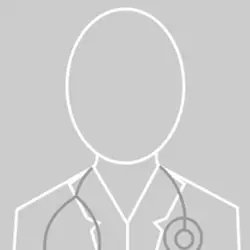Chest pain
"If the appearance of the pain is acute and more if it is accompanied by fever, general malaise or dyspnea, it is a priority to go promptly to an emergency department".
DR. JOSÉ JAVIER VARO
DIRECTOR. EMERGENCY SERVICE

Chest pain is any discomfort or abnormal sensation present in the chest region. It is a frequent symptom of medical consultation; only in the Emergency Services it represents 4-6% of the total consultations.
Given its possible involvement with potentially serious and even fatal pathologies, it often causes great distress to the patient and always represents a diagnostic challenge for the doctor.
It is therefore advisable to consult in the event of any chronic chest pain of unknown cause. If the appearance of the pain is acute, and more so if it is accompanied by fever, general malaise or dyspnea, it is a priority to go promptly to an emergency department.

What are the symptoms of chest pain?
The symptomatology will depend on the affected organ:
Coronary type pain (angina pectoris or myocardial infarction): It is usually an oppressive type of pain. It can radiate to the left arm, neck or jaws. As a general rule, it is accompanied by general symptoms with discomfort, profuse sweating, nausea and even vomiting and a feeling of dyspnea.
Pericardial pain: It is a sharp oppressive pain, located in the center of the chest and typically increases with respiratory movements.
Esophageal or digestive pain (esophagitis, hiatus hernia): The pain is of a stabbing or burning type throughout the retrosternal area, sometimes even reaching the throat.
Pleuropulmonary pain (pneumonia, pleurisy, pneumothorax, tumors, etc.): Usually it is a more localized pain at the level of the sides, which increases with respiratory movements or cough.
Osteomuscular pain (rib fractures, osteochondritis, muscle tears): Pain generally localized that increases with the mobilization of the trunk, disappearing or improving at rest.
Neurotic pain (herpes zoster): Burning pain, usually affecting one side, ranging from the back to the front of the chest.
Pain of nervous or psychogenic origin: It is usually a sharp pain at the tip of the finger (like pricks).
Do you have any of these symptoms?
Further study of your chest pain may be needed
How is chest pain diagnosed?

Given the multiple causes of chest pain, a concrete diagnosis requires a very detailed medical history from the physician and, sometimes, extensive studies to clarify the causes.
Whenever there is no clear traumatic cause, a chest X-ray and electrocardiogram will be necessary in order to rule out the potentially more serious causes.
Depending on the results, complementary explorations will be indicated, such as analysis, lung scan, thoracic CT, digestive studies, etc.
How is chest pain treated?
The treatment will depend on the cause that produces it: vasodilator drugs or angioplasty, in cases of angina pectoris; antibiotics and antipyretics, in cases of pneumonia; antacids and inhibitors of gastric acid secretion, in cases of digestive cause; antivirals, in herpes or even emergency surgical treatments such as in the case of aortic dissection or pneumothorax evacuation.
Overall, it should be clear that self-medication or the use of analgesics in an empirical manner is not appropriate if the origin of the pain is not clarified.
The Department of Cardiology
of the Clínica Universidad de Navarra
The Department of Cardiology of the Clinica Universidad de Navarra is a center of reference in different diagnostic techniques and coronary treatments.
We have been the first center in Europe to place a pacemaker by means of a catheterization without the need to open the chest, for cases of severe heart failure.
The Cardiology Department of the Clinic collaborates with the Radiology and Cardiac Surgery Departments to achieve a quick and precise diagnosis of the patient.

Why at the Clinica?
- Specialized Arrhythmia Unit of national reference.
- Unit of Hemodynamics and Interventionist Cardiology equipped with the best technology.
- Cardiac Imaging Unit to achieve the highest diagnostic accuracy.


















